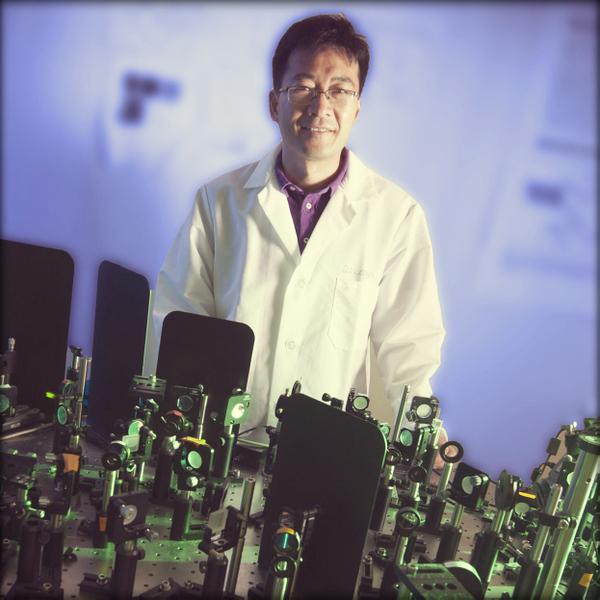2015-16 Preeminent Teams named

Ji-Xin Cheng leads the label-free spectroscopic sensing team
Label-free Spectroscopic Imaging: Emerging Platform for Biology and Medicine
Label-free spectroscopic sensing can leave living tissues unaltered as it gathers more accurate findings more quickly than conventional processing. Current technology also kills tissue. This team’s efforts will harness research from several groups in areas that include electrical engineering, chemistry, biology and medicine. The team is led by Ji-Xin Cheng, Professor, Biomedical Engineering.
Advanced Composites Manufacturing
This team will conduct research into composites manufacturing for industries including aerospace and automotive. New materials could bring innovations such as lighter, more powerful and fuel efficient jet engines. Byron Pipes, John L. Bray Distinguished Professor of Engineering, is the team leader.
Jamieson also announced the inception of an additional team that had been chosen in the fall 2014 competition, but whose selection was postponed until sufficient resources were secured for its work. The new teams bring the total number of Preeminent Teams to 11 over the three years of the competition.
Engineering Healthier Brains: Assessment, Treatment and Prevention of Neurophysiologic Injury and Disease
Previous work by members of this team has demonstrated that non-concussive blows to the head can alter brain physiology, even when clinical symptoms are absent, and that medical imaging technologies can reliably quantify brain injury. By better understanding the underlying neuropathology of brain injury, the team plans to generate new clinical treatments. Thomas Talavage, Professor, Electrical and Computer Engineering and Biomedical Engineering, leads the team.
